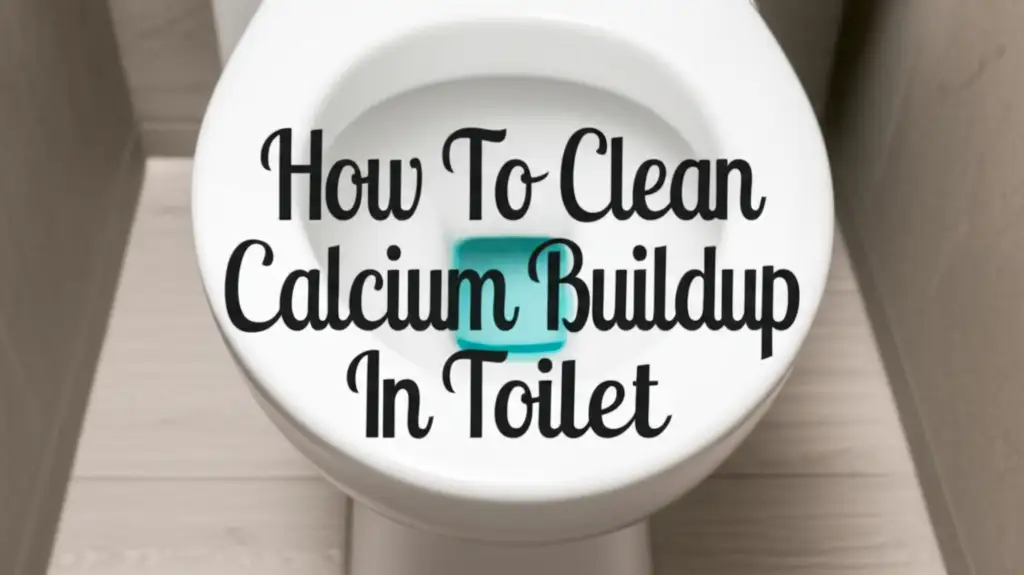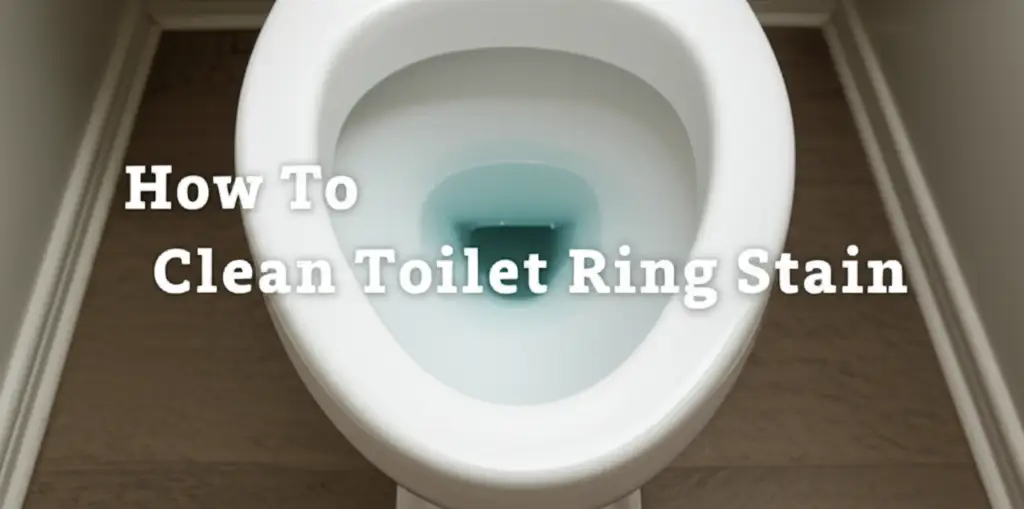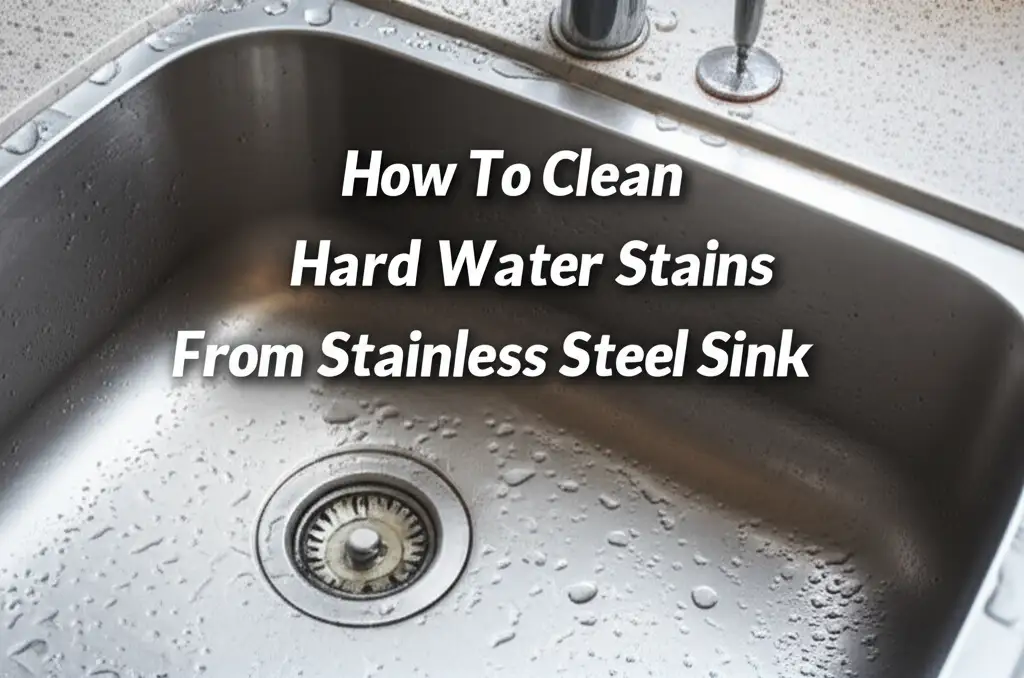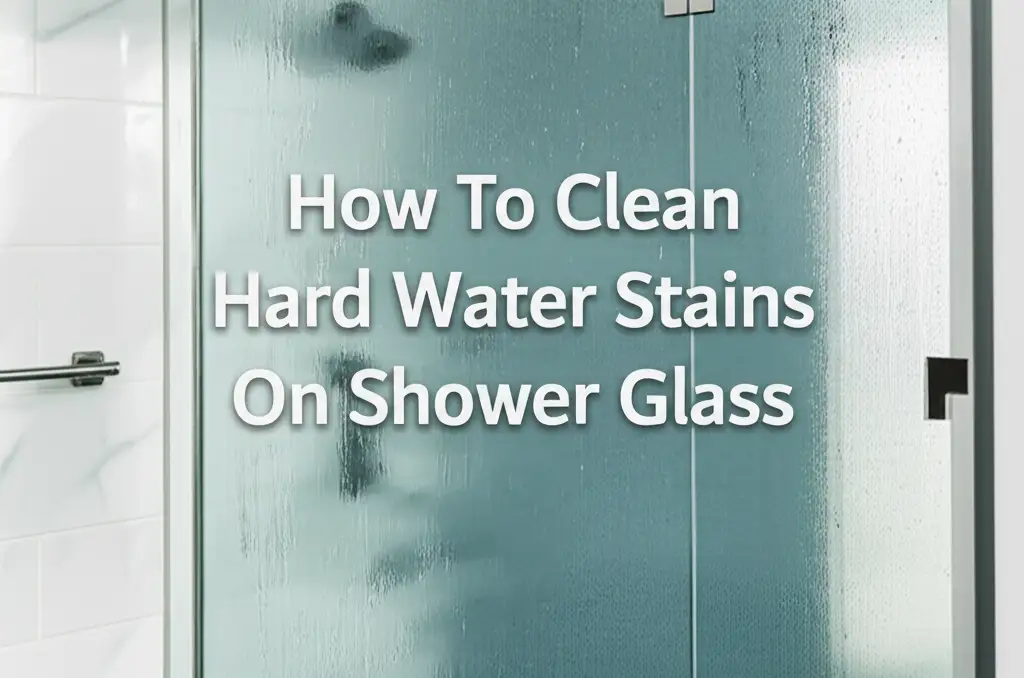· Home Cleaning · 20 min read
How To Clean Shower Glass Hard Water
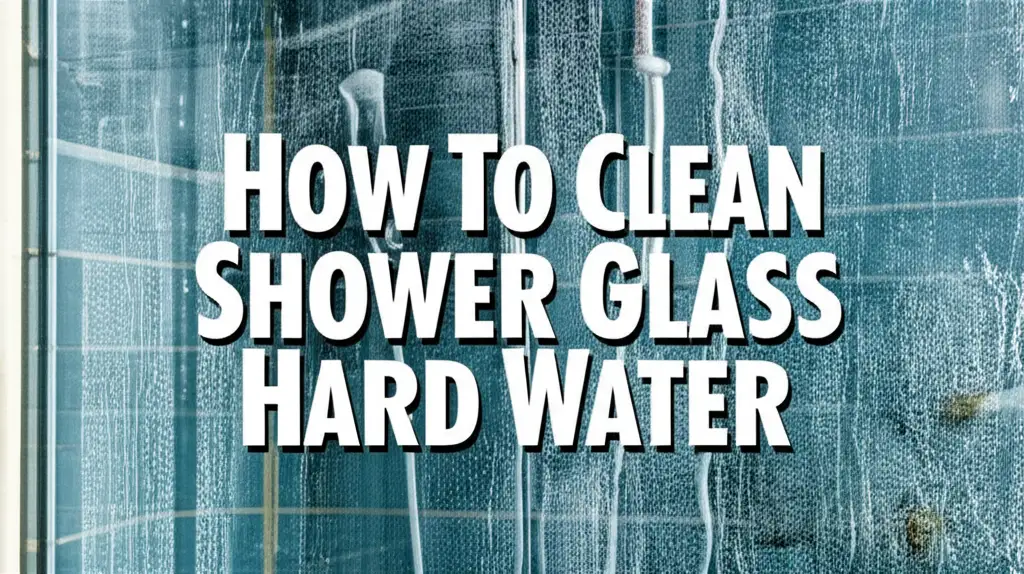
Effectively Clean Shower Glass Hard Water Stains
Hard water stains on shower glass are a common sight. These chalky, opaque marks make your bathroom look dull. They build up over time from minerals in your water. Cleaning them feels like a big job. You want a clear, sparkling shower enclosure. I know the struggle of trying to get rid of those stubborn spots.
This article gives you clear steps to clean shower glass hard water. We will explore simple DIY solutions. We will also look at strong commercial products. You will learn how to prevent future build-up. We aim to help you keep your shower glass spotless. Let’s get your shower looking new again.
Takeaway
- Understand Stain Types: Know if you have hard water, soap scum, or both. This helps pick the right cleaner.
- Gather Supplies First: Collect all tools and cleaning agents before you start.
- Use Acidic Cleaners for Hard Water: Vinegar and lemon juice are effective natural options. Specific commercial cleaners also work.
- Apply and Let Sit: Allow cleaners time to break down mineral deposits.
- Scrub Gently But Firmly: Use non-abrasive tools to remove loosened stains.
- Rinse Thoroughly: Wash away all residue to prevent new spots.
- Prevent Daily: Use a squeegee and wipe down glass after each shower.
- Consider Water Softeners: Address the root cause of hard water issues.
To effectively clean shower glass hard water, you need to dissolve mineral deposits with an acidic cleaner. Then, scrub away the loosened residue with a non-abrasive tool. Rinse and dry the glass completely. Regular maintenance helps prevent future build-up.
Understanding Hard Water and Its Impact on Shower Glass
You might wonder why your shower glass looks so cloudy. The answer often lies in your water supply. Hard water contains high levels of dissolved minerals. These minerals include calcium and magnesium. When this water dries on surfaces, it leaves behind these mineral deposits. They appear as white, chalky spots or streaks.
This build-up is not just ugly. It can also cause damage over time. The minerals can etch into the glass surface. This makes the stains harder to remove later. Soap scum often mixes with these mineral deposits. Soap scum forms from the reaction of soap with hard water. This creates an even tougher film to clean. Knowing what you are up against helps you choose the right cleaning method. Understanding the enemy is the first step in winning the fight against shower glass stains.
Hard water stains look like white or off-white spots. They feel rough to the touch. They build up in layers. This makes the glass look opaque. These mineral deposits reduce the clarity of your shower glass. Over time, the build-up becomes very difficult to remove. It also traps soap scum and dirt. This leads to a dirtier-looking shower. The only way to win against these stains is to tackle them head-on.
Essential Tools and Supplies for Effective Cleaning
Before you start cleaning, gather all your supplies. Having everything ready saves time and effort. You will need a few key items to clean shower glass hard water effectively. Make sure your chosen tools are safe for glass. Avoid anything that can scratch the surface. This preparation step makes the cleaning process smoother.
Here is a list of what you will need:
- Spray Bottle: For applying liquid cleaners evenly.
- Microfiber Cloths: These are soft and highly absorbent. They are perfect for wiping and polishing.
- Squeegee: A rubber blade tool. It helps remove water and cleaner for streak-free drying.
- Soft Scrub Brush or Non-Scratch Scrubber: For gently scrubbing away tough stains.
- Plastic Putty Knife or Razor Blade (Optional): For very stubborn, thick deposits. Use with extreme caution.
- Gloves: To protect your hands from cleaning solutions.
- Bucket: For mixing solutions or rinsing cloths.
- Ventilation: Open windows or turn on the fan. This ensures good airflow when using cleaners.
Having these items on hand means you can clean without interruptions. I always make sure my cleaning kit is fully stocked. This makes any cleaning job much easier. Your success in getting sparkling shower glass starts with good preparation.
Powerful DIY Solutions for Shower Glass Hard Water Stains
Many effective cleaning solutions for hard water stains are found right in your home. These DIY methods are often gentler than commercial products. They are also more eco-friendly. I find them surprisingly powerful for tackling common build-up. These methods rely on the acidic nature of common household items. They work to break down the mineral deposits.
White Vinegar and Dish Soap Method
This combination is a staple for hard water stain removal. Vinegar is acidic. It dissolves mineral deposits. Dish soap helps break down grease and soap scum. This makes it a great all-around cleaner for shower glass.
- Mix the Solution: Combine equal parts white vinegar and dish soap in a spray bottle. For example, use one cup of vinegar and one cup of dish soap. Shake the bottle gently to mix.
- Apply to Glass: Spray the entire shower glass surface. Make sure to cover all stained areas well.
- Let it Sit: Allow the solution to sit for at least 15-30 minutes. For very stubborn stains, you can let it sit for a few hours. The longer it sits, the more it works to loosen the minerals.
- Scrub the Stains: Use a soft scrub brush or a non-scratch sponge. Gently scrub the glass in circular motions. You will see the stains start to lift.
- Rinse Thoroughly: Rinse the glass completely with warm water. Ensure all cleaner residue is gone.
- Dry for Shine: Use a clean squeegee or a microfiber cloth to dry the glass immediately. This prevents new water spots.
This method is simple and effective. It makes your shower glass shine. It also helps remove built-up how to clean soap scum from glass shower doors which often accompanies hard water marks.
Baking Soda and Vinegar Paste
For tougher, more localized hard water stains, a paste works wonders. Baking soda provides gentle abrasion. Vinegar reacts with baking soda to create fizzing action. This helps lift stubborn deposits.
- Create the Paste: In a small bowl, mix baking soda with just enough white vinegar to form a thick paste. The mixture will fizz.
- Apply to Stains: Apply the paste directly to the hard water stains. Spread a generous layer over the affected areas.
- Let it Work: Let the paste sit for 10-15 minutes. For heavy build-up, let it sit longer.
- Scrub Gently: Use a soft brush or sponge to scrub the paste into the stains. The gentle abrasive action helps remove the deposits.
- Rinse Clean: Rinse the glass with water. Make sure to remove all paste residue.
- Wipe Dry: Dry the glass with a clean microfiber cloth or squeegee.
This paste is especially useful for how to clean shower with baking soda and target specific areas. It provides a more concentrated cleaning action.
Lemon Juice Power
Lemon juice is another natural acidic cleaner. It is a good alternative if you do not like the smell of vinegar. Lemon juice is also effective at dissolving mineral deposits.
- Cut Lemons: Slice a lemon in half.
- Rub Directly: Rub the cut lemon half directly onto the hard water stains. Squeeze as you rub to release the juice.
- Let it Sit: Let the lemon juice sit on the glass for 10-15 minutes.
- Scrub and Rinse: Scrub with a soft brush and then rinse thoroughly with water.
- Dry: Dry the glass with a squeegee or microfiber cloth.
Lemon juice leaves a fresh smell. It is a simple way to deal with lighter hard water spots. Remember, these DIY solutions are best for regular maintenance or moderate stains. For very severe build-up, you might need stronger methods.
Commercial Cleaners for Stubborn Hard Water Stains
Sometimes, DIY solutions are not enough. For heavy hard water build-up, commercial cleaners offer a stronger option. These products are formulated to tackle tough mineral deposits. They often contain stronger acids or specialized chelating agents. Always follow the product instructions carefully. Ensure good ventilation when using these cleaners.
When choosing a commercial cleaner, look for products specifically designed for “hard water stain removal” or “limescale remover.” Many brands produce effective solutions. Some common ingredients include phosphoric acid or sulfamic acid. These acids are stronger than vinegar. They work quickly to dissolve mineral deposits.
Types of Commercial Cleaners
- Spray Cleaners: These are convenient for general application. You spray them on, let them sit, and then wipe.
- Gel Cleaners: Gels cling to vertical surfaces better. This allows longer contact time for tougher stains.
- Foam Cleaners: Foaming action can help lift dirt and scale from the surface.
How to Use Commercial Cleaners Safely and Effectively
- Read Instructions: Always read the product label before use. Pay attention to safety warnings and application guidelines.
- Ventilate the Area: Open windows and turn on exhaust fans. Commercial cleaners can produce strong fumes.
- Wear Protective Gear: Use rubber gloves and safety glasses. Some cleaners can irritate skin or eyes.
- Test in an Inconspicuous Spot: Before applying to the entire glass, test a small, hidden area. This checks for any adverse reactions or discoloration.
- Apply Evenly: Spray or apply the cleaner onto the dry shower glass. Cover all stained areas.
- Allow Dwell Time: Let the cleaner sit for the recommended time. This allows the chemicals to break down the hard water deposits. Do not let it dry on the glass.
- Scrub Gently: Use a non-scratch pad or sponge to scrub the glass. Apply gentle pressure.
- Rinse Thoroughly: Rinse the glass completely with clean water. Make sure no cleaner remains.
- Dry Immediately: Use a clean squeegee or microfiber cloth to dry the glass. This prevents new water spots.
Remember, strong cleaners require careful handling. Never mix different commercial cleaners. This can create dangerous fumes. For persistent hard water stains, a commercial cleaner can be a powerful tool. They work well, especially for how to clean hard water stains on shower glass that have built up over years.
Advanced Techniques for Stubborn Stains
Sometimes, hard water stains become deeply etched into the glass. They do not respond to standard cleaning methods. For these extremely stubborn stains, you need more aggressive tactics. These methods require more caution. They are not for daily use. They aim to restore clarity to badly stained shower glass.
Using a Razor Blade or Scraper
This method is for very thick, crusty mineral deposits. It requires a steady hand and extreme care. A new, sharp razor blade or a glass-safe scraper can lift these deposits.
- Wet the Glass: Wet the glass surface thoroughly with water. Or, spray it with a vinegar solution. This provides lubrication.
- Angle the Blade: Hold the razor blade or scraper at a very low angle to the glass. Aim for about 10-15 degrees.
- Scrape Gently: Gently push the blade across the glass. Apply light, even pressure. Work in small sections. Do not press hard. You risk scratching the glass.
- Wipe and Repeat: Wipe away loosened deposits with a damp cloth. Repeat as needed.
- Rinse and Clean: After scraping, clean the glass with a standard cleaner. Then rinse and dry.
I use this method sparingly and with great care. It can truly remove layers of build-up. However, one wrong move can damage your glass.
Melamine Foam Erasers (Magic Erasers)
Melamine foam sponges, often sold as “Magic Erasers,” are mildly abrasive. They can effectively scrub away tough hard water stains. They work by acting like very fine sandpaper.
- Wet the Eraser: Dampen the melamine foam eraser with water.
- Scrub Stains: Gently scrub the hard water stains in circular motions. Apply light pressure.
- Rinse and Dry: Rinse the glass to remove residue. Dry with a clean cloth.
These erasers can be very effective. Be careful not to scrub too hard. This might leave a hazy film on the glass over time. Always test in a small area first.
Specialty Polishing Compounds
For extreme etching or dullness from hard water, consider a glass polishing compound. These compounds contain very fine abrasives. They work to polish away minor surface imperfections.
- Choose a Product: Select a non-abrasive glass polishing compound. These are often used for car windshields or headlights.
- Apply and Buff: Follow the product instructions. Usually, you apply a small amount to a microfiber cloth. Then buff it into the glass in small sections.
- Rinse and Dry: Rinse thoroughly to remove all compound. Dry the glass.
These compounds are more involved. They can restore significant clarity to very dull glass. They are an option when all else fails. Remember, these are heavy-duty techniques for serious problems. For most hard water stains, the DIY or commercial spray cleaners are enough.
Preventative Measures to Keep Shower Glass Clean
Cleaning hard water stains is one thing. Preventing them from forming in the first place is another. Proactive steps save you a lot of effort in the long run. I find that a few simple habits make a big difference. They help maintain sparkling shower glass with minimal effort. Prevention is always easier than deep cleaning.
Daily Squeegee Use
This is the most effective daily habit you can adopt. A squeegee removes water from the glass surface after each shower. This prevents minerals from drying and forming spots.
- Keep Squeegee Handy: Store a squeegee inside your shower. Make it easily accessible.
- Wipe After Each Shower: After showering, take 15-30 seconds to squeegee the glass. Start from the top and work your way down. Overlap each stroke slightly.
- Wipe the Blade: Wipe the squeegee blade with a cloth after each use. This keeps it clean and effective.
I promise, this simple step is a game-changer. It makes a huge difference in preventing hard water build-up.
Daily Spray and Wipe Down
If a squeegee feels like too much, a daily spray can help. This method still involves removing water, but with a cleaning solution.
- Create a Daily Spray: Mix equal parts water and white vinegar in a spray bottle. You can add a few drops of essential oil for a pleasant scent.
- Spray After Shower: Lightly spray the shower glass after each use.
- Wipe with Microfiber: Use a clean microfiber cloth to quickly wipe down the glass. This removes water and soap residue.
This daily routine helps dissolve any fresh mineral deposits before they harden. It also helps with how to clean hard water stains off chrome fixtures in your shower.
Applying a Water Repellent Coating
Specialized coatings can create a protective barrier on your shower glass. These coatings make the glass hydrophobic. This means water beads up and rolls off, instead of clinging to the surface.
- Clean Glass First: Ensure the glass is perfectly clean and dry before applying.
- Apply Coating: Follow the product instructions carefully. Usually, you spray on the coating and buff it in.
- Reapply as Needed: These coatings need reapplication every few months or once a year.
Water repellent coatings significantly reduce the adherence of hard water and soap scum. They make daily cleaning much easier.
Consider a Water Softener System
For the ultimate prevention, consider installing a whole-house water softener. This system removes minerals from your water before it even reaches your shower. This eliminates the source of hard water stains.
- Consult a Professional: A plumber can assess your water hardness. They can recommend the right system for your home.
- Long-Term Solution: A water softener is a significant investment. However, it solves hard water problems throughout your entire home. This means no more hard water stains on your shower glass, sinks, or appliances. It’s an effective way to address problems like how to clean hard water from shower head as well.
Preventative measures are key to keeping your shower glass sparkling. They reduce the need for harsh chemicals and intense scrubbing. I highly recommend incorporating at least one or two of these habits into your routine.
Maintaining Your Shower Glass for Lasting Shine
Cleaning your shower glass is a battle won. Maintaining it ensures you do not have to fight the same battle again soon. Consistent care keeps your glass looking pristine. This section focuses on ongoing habits and tips. They extend the life of your cleaning efforts. A little bit of consistent effort goes a long way.
Regular Deep Cleaning Schedule
Even with daily maintenance, some build-up is inevitable. Plan for a deeper clean regularly.
- Weekly Check: Do a quick check of your shower glass weekly. Look for any new spots forming.
- Monthly Deep Clean: Aim for a thorough cleaning of your shower glass once a month. Use your preferred DIY or commercial cleaner. This prevents significant accumulation.
- Adjust Based on Water Hardness: If you have very hard water, you might need to clean more often. If your water is soft, less frequent deep cleaning is fine.
This schedule helps you stay on top of things. It prevents stains from becoming too difficult to remove.
Proper Ventilation
Good ventilation in your bathroom helps reduce humidity. This speeds up the drying of surfaces. Faster drying means less time for water to sit and leave mineral deposits.
- Use Exhaust Fan: Always turn on your bathroom exhaust fan during and after a shower. Let it run for at least 15-20 minutes after you finish.
- Open Windows: If you have a window in your bathroom, open it slightly after showering. This allows moist air to escape.
- Consider a Dehumidifier: In very humid climates, a small bathroom dehumidifier can help.
Better ventilation helps prevent mold, mildew, and hard water spots.
Avoid Abrasive Cleaners and Tools
While some advanced techniques use mild abrasives, avoid them for routine cleaning.
- Soft Cloths: Always use microfiber cloths or soft sponges.
- Non-Scratch Scrubbers: Choose scrubbers labeled as “non-scratch” for glass.
- No Steel Wool or Harsh Brushes: These can permanently scratch your glass. Scratches trap more minerals and dirt, making the problem worse.
Protecting your glass surface is important. Scratches make future cleaning harder.
Sealing Shower Glass
Similar to water repellent coatings, sealing your shower glass can offer a protective barrier. Professional glass sealing treatments last longer.
- Professional Service: You can hire a professional to seal your shower glass. They use specialized products.
- DIY Sealing Kits: Many DIY kits are available. These apply a protective layer that repels water and stains.
- Benefits: A sealed surface is smoother. It makes it harder for minerals and soap scum to stick. This simplifies cleaning.
Sealing is a great investment for long-term maintenance. It creates a smoother surface that is easier to clean. It also helps prevent problems that require specific solutions, like how to clean hard water from shower head as the water doesn’t sit on the surface for long.
By combining daily actions with regular deep cleaning and smart prevention, your shower glass will stay clear and bright. It truly makes a difference.
Troubleshooting Common Shower Glass Cleaning Challenges
Even with the best techniques, you might face some unique challenges. Hard water stains can be tricky. Sometimes, what looks like a hard water stain is actually something else. Knowing how to troubleshoot helps you solve the problem effectively.
When Stains Don’t Budge
If stains remain after trying multiple methods, they might be etched into the glass. This means the minerals have permanently bonded with the glass surface.
- Repeat Treatment: Try repeating a strong cleaning method. Apply the commercial cleaner or a thick vinegar paste. Let it sit for a longer period. Sometimes, multiple applications are needed to break down layers.
- Professional Help: For very severe etching, professional glass restoration might be an option. They use special tools and compounds to polish the glass surface. This is usually a last resort.
I have found that patience and repeated applications often work wonders, even on tough spots.
Dealing with Combined Stains (Hard Water & Soap Scum)
Often, hard water stains and soap scum appear together. Soap scum is a grayish, waxy film. It forms when soap mixes with minerals in hard water.
- Vinegar and Dish Soap: The vinegar and dish soap method is excellent for combined stains. Vinegar tackles the minerals. Dish soap cuts through the greasy soap scum.
- Baking Soda Paste: For tough combined spots, use the baking soda and vinegar paste. The abrasive action of baking soda helps remove the sticky scum.
- Specific Soap Scum Removers: Some commercial cleaners are designed specifically for soap scum. These often contain mild solvents or abrasives. Follow their instructions carefully.
Cleaning how to clean soap scum from glass shower doors is a bit different than just hard water. You need a cleaner that can dissolve both mineral and organic residues.
Preventing Streaks After Cleaning
Streaks are frustrating. They often appear after cleaning and drying. They can be caused by residue from the cleaner or minerals from the rinse water.
- Thorough Rinsing: Rinse the glass very thoroughly. Make sure no cleaning solution remains.
- Use Distilled Water for Final Rinse: For a streak-free finish, use distilled water for your final rinse. This water has no minerals.
- Clean Squeegee Blade: Ensure your squeegee blade is perfectly clean and free of nicks. Wipe it after each stroke.
- Clean Microfiber Cloths: Use fresh, clean microfiber cloths for drying. Dirty cloths can leave streaks.
- Work Quickly: Dry the glass immediately after rinsing. Do not let water sit and air dry.
Achieving a streak-free shine takes practice. With these tips, you can master it. I always use a dry, clean microfiber cloth to buff the glass after squeegeeing. This helps remove any last streaks.
Addressing Old, Neglected Stains
Old stains are the hardest to remove. They have had time to bond deeply with the glass.
- Layered Approach: Start with a strong commercial cleaner. Let it sit for a long time. Then, follow up with an abrasive method like a melamine foam eraser or even a razor blade for the most stubborn spots.
- Repeat Applications: You may need to apply the cleaner, scrub, rinse, and repeat several times. This slowly breaks down the layers of build-up.
- Heat Application: Some people find that gently heating the glass (with a hairdryer, not directly touching) before applying a cleaner can help. The heat helps the cleaner penetrate the mineral layers. Use caution with heat and glass.
No matter how bad the stains, there is usually a way to improve the appearance of your shower glass. Patience and the right approach are key.
Frequently Asked Questions About Cleaning Shower Glass Hard Water
Q1: What is the best homemade cleaner for hard water stains on shower glass?
The best homemade cleaner for shower glass hard water stains is a mixture of white vinegar and dish soap. Combine equal parts in a spray bottle. Spray it on, let it sit for 15-30 minutes, then scrub and rinse. This solution effectively dissolves mineral deposits and cuts through soap scum.
Q2: How often should I clean my shower glass to prevent hard water stains?
You should squeegee or wipe down your shower glass after every use. This is the best prevention. For deeper cleaning, aim for once a week if you have hard water, or bi-weekly if your water is softer. Regular maintenance prevents stains from building up.
Q3: Can hard water stains permanently damage shower glass?
Yes, over time, hard water minerals can etch into the glass surface. This creates permanent damage that makes the glass appear cloudy or hazy, even after cleaning. While cleaning helps, etching can only be removed with professional glass polishing or replacement. Preventative measures are important.
Q4: Are “Magic Erasers” safe to use on shower glass for hard water?
Melamine foam erasers, like “Magic Erasers,” are generally safe for shower glass. They are mildly abrasive. They can effectively remove tough hard water stains. Use them gently in circular motions. Avoid excessive pressure or dry scrubbing, as this could potentially leave fine scratches or haze over time.
Q5: What is the easiest way to keep shower glass clean daily?
The easiest daily method is to use a squeegee after every shower. Simply wipe down the glass from top to bottom. This removes water before minerals can dry and form spots. Alternatively, a daily spray of vinegar and water, followed by a quick wipe, also works well.
Q6: Can a water softener really prevent hard water stains on shower glass?
Yes, a whole-house water softener is the most effective way to prevent hard water stains. It removes minerals like calcium and magnesium from your water supply. This eliminates the source of the stains on all surfaces, including shower glass, sinks, and appliances, making cleaning much easier.
Conclusion
Cleaning shower glass hard water stains might seem like a daunting task. However, with the right knowledge and tools, you can restore your shower to its sparkling best. We have explored everything from common household remedies like vinegar and baking soda to powerful commercial cleaners. We also looked at advanced techniques for those stubborn, long-standing stains. Remember, consistency is key.
Implementing daily habits, such as using a squeegee, is your best defense against future build-up. Regular deep cleaning and proper ventilation also play vital roles in maintaining a pristine shower environment. For those with persistent hard water issues, a water softener offers a long-term solution. By taking these steps, you can enjoy a crystal-clear shower enclosure every day. Start your journey to a cleaner, brighter bathroom today! Your sparkling shower glass awaits.
- hard water stains
- shower glass cleaning
- limescale removal
- DIY cleaning
- bathroom maintenance

